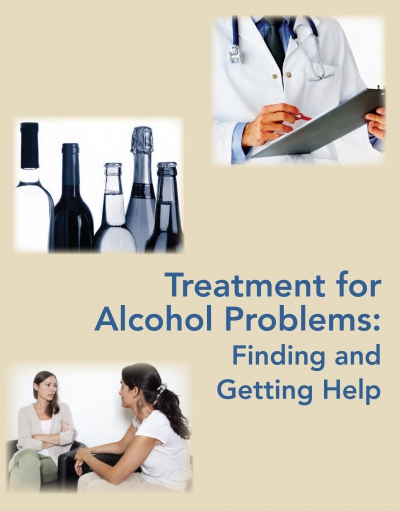New NIAAA resource gives guidance on treatment options for alcohol problems
Publication includes information on effective but underutilized approaches
A new resource from the National Institutes of Health (NIH) will help individuals and families understand available treatment options for alcohol problems. Developed by the National Institute on Alcohol Abuse and Alcoholism (NIAAA), part of the NIH, Treatment for Alcohol Problems: Finding and Getting Help, covers the latest research-based treatments and what to consider when choosing among them.
“The popular concept of alcohol treatment is often limited to knowledge of 28-day inpatient rehab or 12-step programs,” said NIAAA Director Dr. George Koob, Ph.D.
“In fact there are diverse treatment options of which people may be less aware, and many of which can be undertaken with minimal disruption to home and work life. A greater understanding of these options represents a contemporary approach to this problem and an important step toward improving the way we treat alcohol addiction.”
An estimated 17 million Americans currently have alcohol problems, clinically diagnosed as an “alcohol use disorder (AUD).” However, research suggests that each year only a fraction of people with alcohol problems seek professional help. No matter how severe the problem may seem, most people with AUD can benefit from some form of treatment.
The booklet provides detailed descriptions of the two types of professionally-led treatments shown to benefit people with alcohol use disorders — established behavioral treatments which focus on changing drinking behaviors, and medications, which are often coupled with behavioral treatment. It also includes information about mutual-support groups like Alcoholics Anonymous.
Three medications have been approved by the U.S. Food and Drug Administration to help people with alcohol problems stop or reduce their drinking and prevent relapse. These medications — naltrexone, acamprosate, and disulfiram — are non-addictive and can be used alone or in combination with behavioral treatment. All can be prescribed by a primary care physician.
The publication includes questions to help individuals decide what treatment may be the best fit for them, and advice for friends and family members who are affected by their loved one’s drinking. It also includes information on NIAAA research that may lead to future treatment breakthroughs.
Treatment for Alcohol Problems: Finding and Getting Help can be found online at http://pubs.niaaa.nih.gov/publications/treatment/treatment.htm. Hard copies can be ordered by calling 1-888-MY-NIAAA (888-696-4222) or going online at http://pubs.niaaa.nih.gov/publications/english-order.htm.


